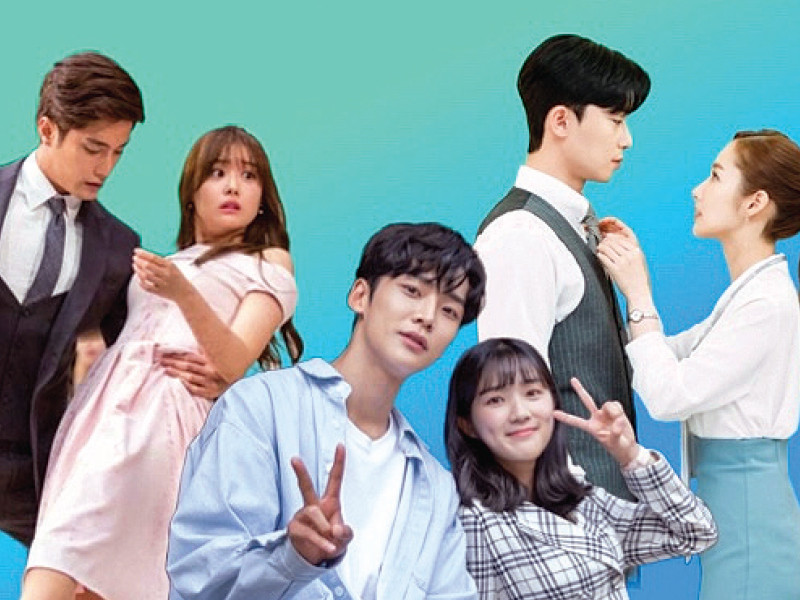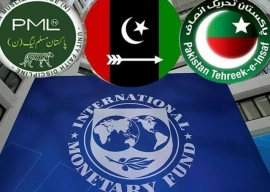
In South Korea, societal norms are the glue holding the developing community together. Respect your elders, bite your tongue, and obey the rules. Sound familiar? South Korean screenwriters have turned these customs and the unpredictability of romance into formulas their loyal viewers can’t get enough of. Business rivals to lovers, marriages of convenience, rekindled first loves, or love triangles where the obvious choice is always the second one. From rooftop confessions to couples defying class barriers, nobody tells a love story like the Koreans.
Korean rom coms are now a globally adored and easily identifiable genre. Picture this: a woman stands on the sidewalk as a car speeds by, splashing through a puddle. The male lead — always over six foot, with perfect hair and an immaculate coat — yanks her out of harm’s way, sacrificing his own designer-clad back to take the hit; it’s a classic scene. I can think of at least four K-dramas where this exact scenario has played out word for word.
Even though we can probably predict the events that will unfold in the next episode, why do these K-dramas appeal so much to Pakistani women? The answer is simple. We can relate to them. Tired of not being able to imagine myself in the shoes of female protagonists in Pakistani dramas that regurgitate the same mother-in-law sabotaging daughter-in-law content, and Western shows that montage the life out of a dance club sequence that inevitably ends in a one-night stand, I ventured into the K-drama scene. Scrolling through Netflix’s vast buffet of K-dramas, What’s Wrong with Secretary Kim? sounded promising — and it was. Finally, something that realistically portrayed what it’s like living in a conservative society. Where the brush of a hand with the opposite gender is a blush-inducing nightmare, a kiss before marriage is social ruin, and confessions of love almost always come with a proposal (with the blessing of her parents of course).
The most intimacy displayed is usually around episode eight, where the classic slip/trip takes place. This is when the female lead will fall dramatically into the arms of the (usually insanely rich) male lead, in slow motion of course, against the backdrop of the most romantic K-pop song.
But K-dramas aren’t only a bastion of slow burn love stories, and there’s more to the obsession than just pretty faces (what is the secret to glass skin?) and dramatic plot twists. Emphasising family, maintaining community, honour, and upholding modesty are shared principles in both Pakistani and South Korean culture, making these K-dramas a refreshing alternative to the risqué antics of Hollywood series. Consequently, they’ve accidentally stumbled upon a whole new fanbase.
K-dramas haven’t just captured the hearts of Pakistani women; they’ve got Muslim women everywhere totally hooked. British Pakistani Sahar Zahid told The Express Tribune, “I wouldn’t say they’re completely halal, but they’re definitely less raunchy than Hollywood flicks — or even the latest Turkish soap operas. As a Muslim woman, I find these shows relatable because premarital relationships aren’t a given, and not everyone is playing the dating game. In most of the series I’ve seen, the couples only get together at the very end, so the main plot is all about them not being a couple yet.”
Sahar also finds how the character arcs defer from the traditional types is a refreshing change from the overprotective, overbearing nature of the young men in other shows. The lack of a fully developed frontal lobe never stopped Korean men from treating their women right. “These dramas show modern men who are secure in their masculinity which rids them of a lot of the toxic behaviour that comes with being insecure. They take care of the women they love,” she says.
Pakistani actor Kubra Khan’s reasons for watching K-dramas and urging others to as well are similar. In a candid PSA for Fuchsia Magazine, Kubra implored, “Men of Pakistan, please watch Korean dramas and learn something from those men — the good ones!” She continued, “How to be empathetic, how to be loving, and how to show love.”
Apart from the all-around halal-ness which is much-appreciated by Pakistani audiences, the writing and story telling in these K-dramas is something that others in the business can learn from. It is detail oriented; plots are followed through till the end — with no holes. The script will almost always include an eye-opening soliloquy by a family elder which ends with a poetic metaphor.
But unless Pakistani viewers are taking Korean lessons on the side, doesn’t the beauty of the story telling get lost in translation? K-drama enthusiast Sabeen Obaidullah says no. “I think directors and producers are now very well aware of their global reach and now pay extra mind to the translations in both subtitles and dubbing.” She also believes acting has a lot to do with preserving the authenticity of the work. “Now that they’ve become so popular, the quality has improved a lot and even if the translations aren’t great, you still understand all the emotions the actors are putting out there,” says Sabeen.









1722596924-0/BeFunky-collage-(25)1722596924-0-270x192.webp)









COMMENTS
Comments are moderated and generally will be posted if they are on-topic and not abusive.
For more information, please see our Comments FAQ